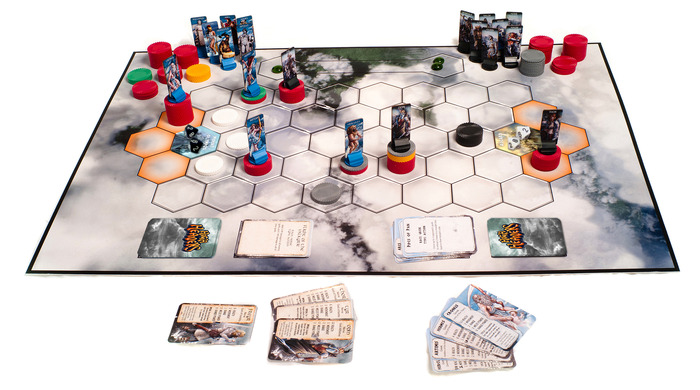Remember back when you were a kid. Weren’t there some subjects of learning that were massively fascinating to you? Dinosaurs, how things function, the solar system, the basics of science. (Honestly, who didn’t get excited with their first baking soda volcano? Some of us here still do…) These are topics that not only kept Bill Nye employed, but they resonated with us on an intrinsic level. These topics were simple to understand on the surface and easy to get in to, but the more we dove into them, the more we realized there was a whole world of information at our disposal. Pretty soon you were explaining the differences between an Ankylosaurus and a Triceratops, or how a steam engine worked, or how a thunderstorm forms to anyone who was listening, because look at how cool this is! Those topics often tend to still sit with us in some manner long afterwards, so that even as sophisticated, mature adults, we still get excited when we see a T-Rex skeleton at a museum.
Learning about mythology is another such example. The idea that there were cultures that worshiped many different gods and each pantheon was full of a vast array of unique deities was remarkable. Most of the time we learned about the Greek and Egyptian realms first, but that branched out as we got more invested. We learned of the Norse and Mesopotamian and Meso-American gods, the Hindu and Celtic gods, and if you really stuck with it, you went beyond that to the worlds of kami, djinn, and native spirits.
Then of course came the arguing with your friends over which group was better.
“Ares was a jerk!”
“Well so was Thor!”
“Ok, but neither compared to …”
If only there had been a way to find out for sure back then. Luckily, now there is. With High Heavens.
In this two-player game, each side commands a pantheon of 12 gods. One side plays the Norse, the other the Greeks, and you compete on a gridded field of battle. Your goals are to either destroy the deities’ home, or just eliminate all 12 enemy gods. Each player is allowed three actions each turn to move, attack, summon new gods, or use special abilities of cards or those of some gods you have in play. The red chip stacks under them are their current health. If those chips are gone, so are they. Players also have a finite deck of 24 cards: half of them are the various gods you can summon; the other half are special cards unique to your side. It looks something like this:
High Heavens is one part chess, one part strategy card game like Magic, and it plays very much like that. Once players get a feel for how the game functions, it can be a quick slaughter, or a knock-down, drag-out game of move and counter-move. Do you send your ranged specialist out, or wait a turn and instead strike with a heavy melee unit? Do I go after the base, or their healer? And what are these walls doing in my way?!? These are the types of decisions you’ll have to consider when you take up your side.
Of course, which gods will be available to you is literally luck of the draw. You don’t have a limit to the number you can have out, but if they die, they’re usually out for good. This builds a tension much like other battlefield strategy games, but instead of a 2-star General in Stratego or a Rook in chess, you’re commanding Hercules.
Classical gods got bored easily, but you shouldn’t have that problem with this game, as it doesn’t last more than 30-60 minutes, with 60 being more for new players or stalemate scenarios. Only one side can win, and it’s done with a lot of flavor. Each deity very much feels like an adequate representation of their character, and they are all slightly different. High Heavens debuted at PAX East, and several of us had a chance to try it out there. In fact, you can even see one of our crew playing it in the Kickstarter’s Update One photos! Needless to say, we found the game engaging on a player level, and very well done from a thematic perspective. Currently the base game will be just the Norse and Greek pantheons, but if the game is successful, the creator fully intends to create additional pantheons to do battle with. If that interests you, or if you’re merely looking for an opponent to cast into Tartarus, check out their campaign!

